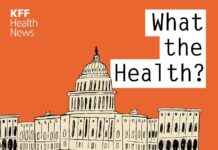**Trump’s Return to the White House: GOP Plans to Drastically Cut Medicaid**
President Joe Biden saw record Medicaid enrollment and a historic low in the uninsured rate. But now, with Donald Trump’s resurgence on the political stage and Republicans controlling both the Senate and the House of Representatives, drastic changes are expected. The GOP plans to slash Medicaid funding and implement regulatory changes, aiming to significantly reduce the nearly $900 billion government health insurance program that serves around 79 million low-income or disabled Americans.
**The GOP’s Strategy to Reduce Medicaid**
The Republican party is exploring various approaches to reducing the size of Medicaid:
Shifting to Block Grants: By switching to annual block grants, the government could lower federal funding for states while giving them more flexibility in spending. This change could impact how each state operates the program, aiming to end the open-ended federal funding each state currently receives.
Cutting ACA Medicaid Funding: The Affordable Care Act provided financing to extend Medicaid coverage to Americans with incomes up to 138% of the federal poverty level. The GOP may seek to lower the federal funding for Medicaid expansion, which covers adults at a higher rate than the traditional program.
Lowering Federal Matching Funds: The GOP could target the federal match rate based on the wealth of each state, potentially reducing the percentage match some states currently receive.
Adding Work Requirements: Republicans may aim to implement strict work requirements for able-bodied adults, a move that could lead to significant cost savings but may not have a substantial impact on employment, given that most Medicaid enrollees already work, attend school, or serve as caregivers.
Placing Enrollment Hurdles: Some states offer continuous eligibility to prevent enrollees from losing coverage due to hardships or paperwork issues. Repealing waivers that allow multiyear continuous eligibility could force people to reapply annually for coverage.
**Implications of Shrinking Medicaid**
If the GOP’s plans to shrink Medicaid come to fruition, low-income individuals may face challenges affording private insurance with high monthly premiums, copayments, and deductibles. Experts warn that scaling back Medicaid could adversely affect children, pregnant women, and individuals with disabilities, who traditionally benefit from the program.
**Voices Against Medicaid Cuts**
Advocates for poor individuals are concerned that significant funding cuts to Medicaid could leave more Americans uninsured, making access to care more challenging. Experts note that various stakeholders, including state governments, managed-care organizations, and long-term care providers, are likely to resist drastic cuts to the program.
As the political landscape evolves and discussions around Medicaid intensify, one thing remains clear: the future of Medicaid is uncertain, and the potential changes could have far-reaching implications on millions of Americans across the country.

















